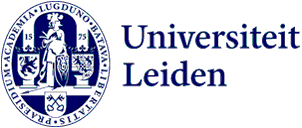
‘Don’t let algorithms determine what happens in class’
From TikTok to ChatGPT: digital technology is permeating our whole existence. What does that mean for education and upbringing? It’s not about screen time but the nature and context in which it is used, says education specialist Marga Sikkema-de Jong.
Children learn, play and develop in a world full of screens, platforms and algorithms. That means it is essential that pedagogy engages with this and responds to it, says the professor of Education and Child Development in a Digital World: ‘Not nostalgic or technology-pessimistic, but also not naively accepting everything that seems new and efficient.’
Control
This new online world raises some fundamental questions: ‘Who decides what’s important in class: the teacher or the algorithm? And how do we make sure that digital resources don’t determine the course, but rather support where that’s useful?’ This is why in her inaugural lecture Sikkema-de Jong calls for conscious pedagogical choices: only choose digital resources if they are enriching, and keep control yourself.’

Gamification
An example is ‘gamification’ in education, where the teaching material is offered with online game elements like bonuses and rewards. Games can improve pupils’ motivation, but only if they are well thought out and are used effectively, she believes. So the format has to be pedagogically responsible and should call for more than a simple reward incentive. ‘If learning and development are reduced to instant stimuli and rewards, the significance will be lost.’ In that case we are denying children the opportunity to learn to concentrate and be intrinsically motivated.
That does not mean that Sikkema-de Jong is overly critical of digitality. She stresses that it isn’t about screen time, but the nature and context in which it is used. Both at school and at home, screen use is often a source of concern and connectedness.
Digital picture books
She is enthusiastic about digital picture books with an audio read-aloud function. They are very useful in families, for example, where parents are not able to read Dutch well. ‘Digital picture books support development where analogue resources fall short. These kinds of books make literary experiences accessible for young children.’
Studies using eyetrackers
Sikkema-de Jong carries out research on the effect of e-books. She uses eyetrackers to see how children divide their attention if they are read to aloud by the computer. Data from digital libraries show how children use e-books at home and at school. For another study she uses smartphone recordings that give an insight into how youngsters switch between apps and social platforms, ‘These data are never angoal in themselves,’ she stresses ‘The data only gains importance ifthey are linked to the experiences of educators and the questions that are relevant in society.’

Room for the unexpected
At the end of her inaugural lecture she calls for a re-evaluation of ‘serendipity’ in education and upbringing: make room for the unexpected, don’t nail everything down with formats. She looks back on her own physics teacher in year 6 of grammar school. After finding a paper plane on his desk, the teacher had the courage to change the lesson, letting the pupils make planes themselves and teaching the class more about the laws of air resistance. It was an unforgettable experience. Sikkema-de Jong: ‘If you keep room for the unexpected, you keep the heart of education and teaching open, even in a digital world.’
